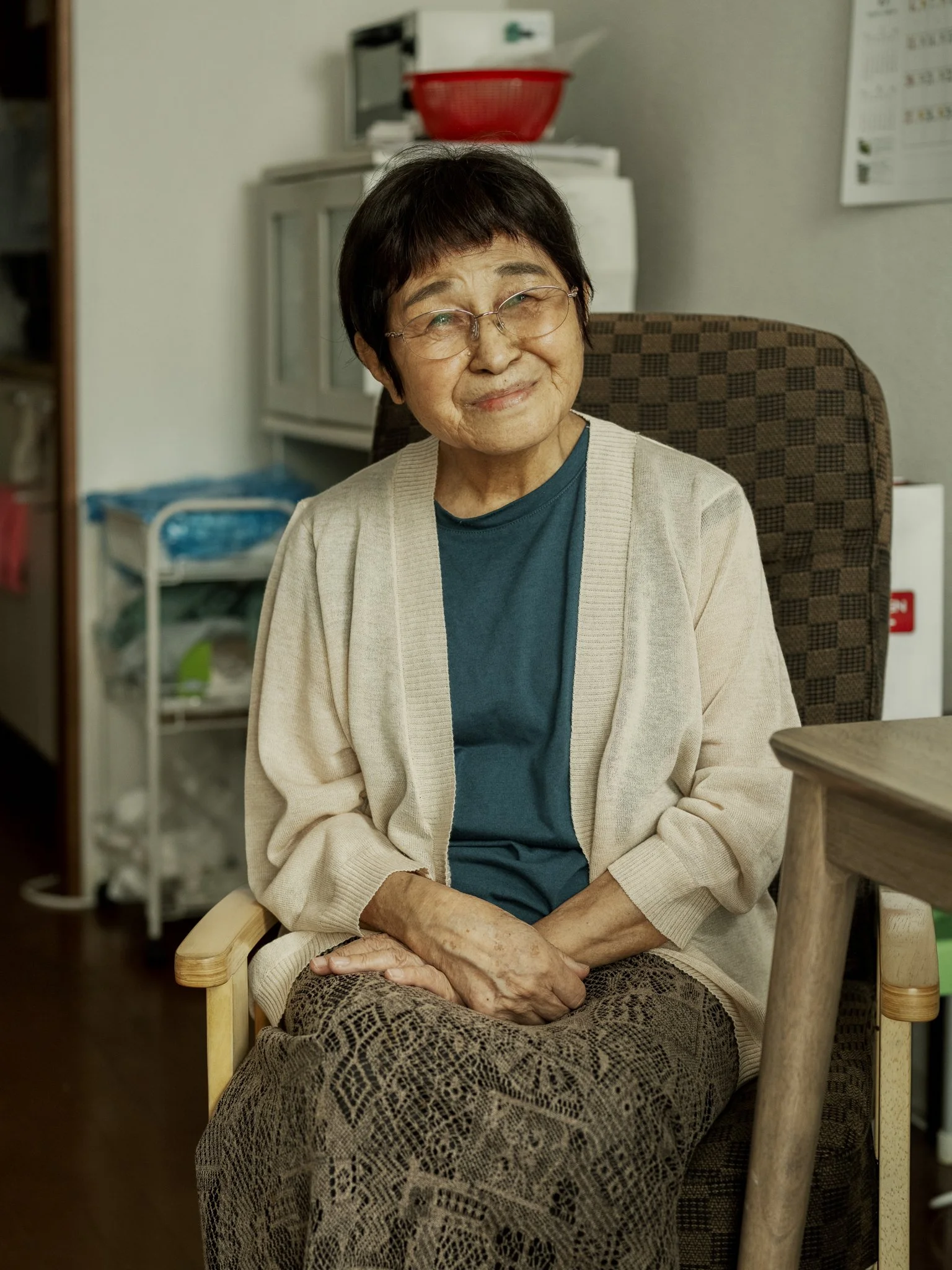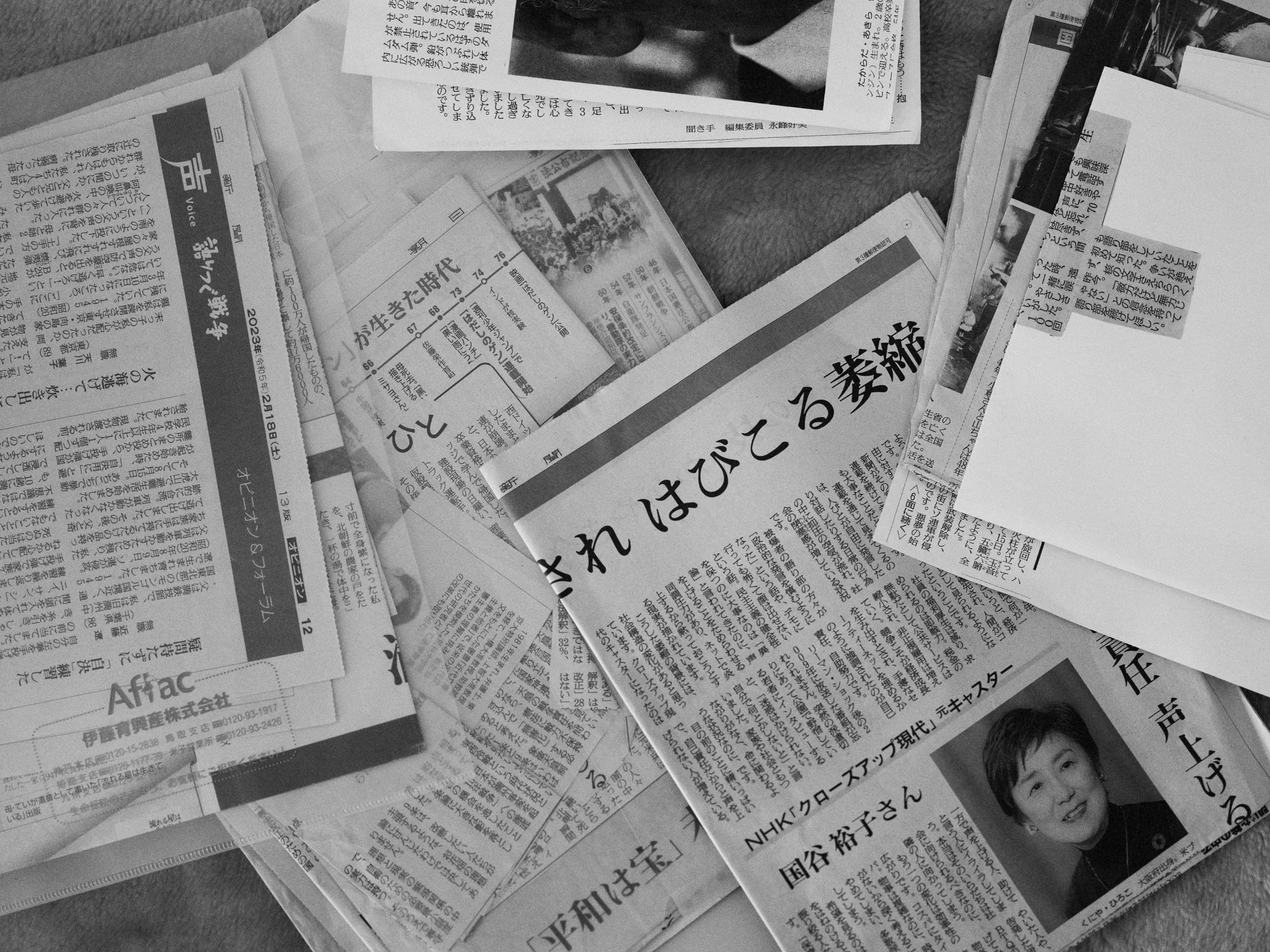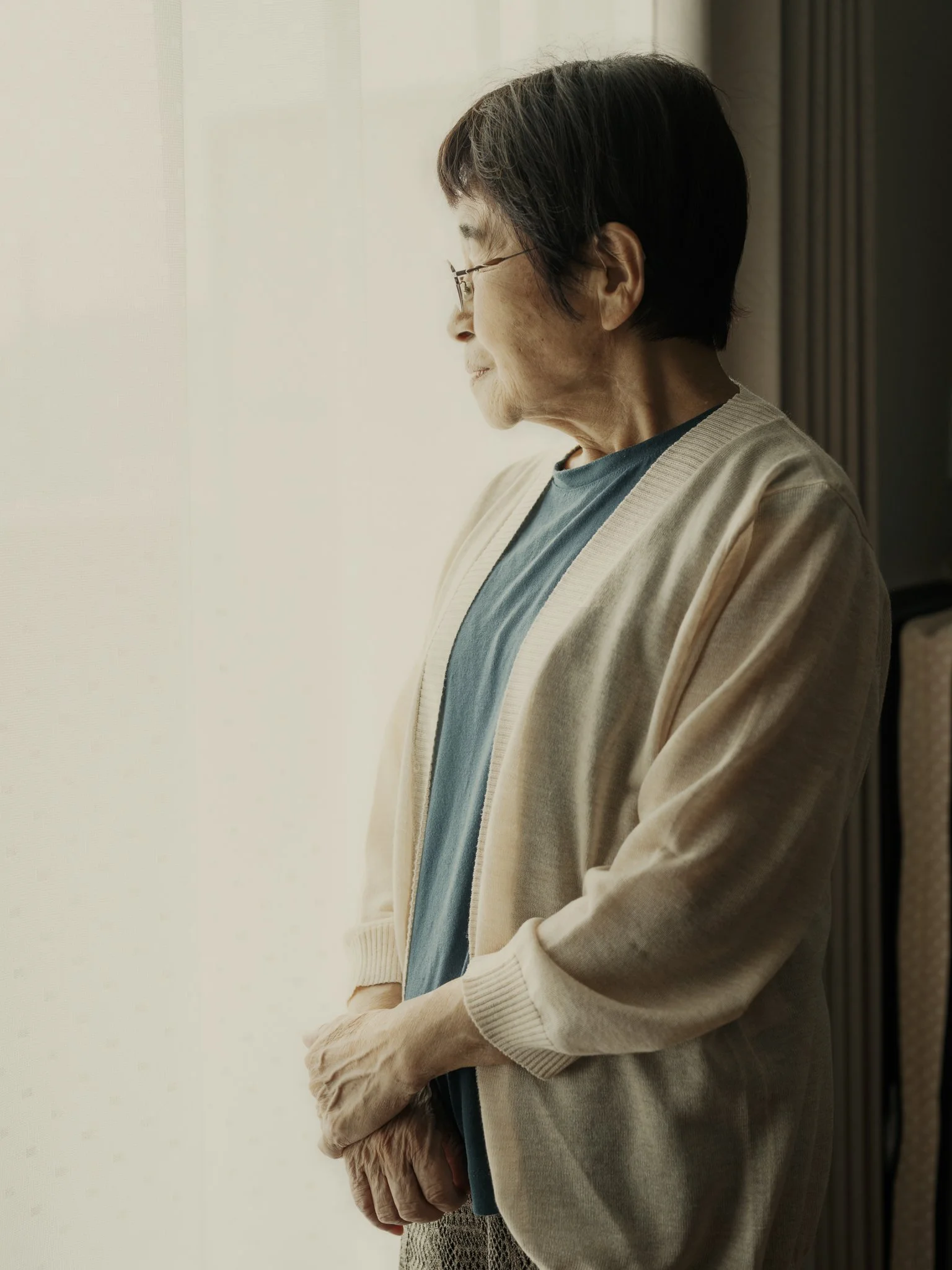Beyond War - Kodera San
Below is my interview with Mrs. Yashima. My goal for this entire project is to hear about each subjects’ experience. This is what everyday children went through during a war. War is often thought of as country vs. country. This might be accurate for people who decide on their own to go into a war, however, the cost for everyday people who happened to be born in a country that experiences a war is immeasurable. The people I interviewed, who were children during World War II, all talked about the mistake of starting a war. As this generation ages and passes away, I wanted to share their stories, not to change anyone’s mind, but in hopes that their experiences will give all of us one more piece of information to consider as we make decisions about peace in the future.
Interview
I was born in 1936. My father was an army medic, and my grandpa was in the army.
I was born in Harbin, China. My dad studied Russian in college, and our family moved to Harbin to use his Russian skills. He was on the battlefield not to kill someone but to save someone. He shared his supplies with local people. He was sent to Tokyo right after I was born, and we all moved to Tokyo after that. I was five and the oldest among three siblings. My dad traveled to battle zones, so us three kids and our mom lived in Tokyo.
I remember my mom running to my bed at night, saying something terrible happened. Her hands were shaking, and she said our dad might not be coming back. This was right after there was an announcement of Japan attacking the American army.
In 1943, we started to see American airplanes attacking Tokyo. We were all told to hide when we saw the airplanes as they might start shooting at them. There were a few cases where kids were targeted and killed on the way to school and home. When an American aircraft fell, people beat the soldiers to death. War makes people crazy.
When my brother was 3, our dad returned home for the first time. My brother met him for the first time. He asked to hold his hands and stayed with him the entire time. He wanted to sit on our dad's lap even when eating food. He went to the train station every day to welcome him back during his visit. Our dad left Tokyo again to go back to a war zone. My brother kept going back to the train station. I remember my brother waiting for our dad, crying at the train station for the next two weeks.
Around this time, the Japanese government started collecting anything metal (even buttons on school uniforms) to make aircraft. Looking back, Japan was on the cusp of losing already, but I didn't doubt we were winning at the time. Everyone was told to be 100 million people with one soul to have one soul to win the war, which made it even harder to believe we might be in trouble.
In 1944, food started to become scarce. Kids in the city were ordered to move to the countryside. We were all hungry, and some of us ate medicine for stomachaches on top of our rice. Many of us looked for weeds we could eat.
After a while, the air attacks started to escalate. My grandparents in Harbin asked us to stay with them. We didn't have anywhere else to go, so we decided to take a chance and go to China.
When we were on the ship to Busan (Korea), there was the announcement that an American ship was heading our way. Everyone received a life jacket. My mom grabbed my brother and tried to help me and my younger sister. There was a man who told her that he would save us girls when we jumped. Japanese ships were successful in pushing the American ships back so we didn't need to jump, but I still remember that person's face and the kindness a stranger can display even in a rare situation.
Once we got to Harbin, the spent two months happily with our family. However, a few days after the announcement of the nuclear bomb, the Russian army started to come into Harbin despite their non-war treaty. They took everything they wanted from Japanese people's houses, and because the Japanese mistreated local Chinese people, they came in to take Japanese people's belongings, too. Japanese government cut off their people in this area, and there was no action to bring any of those Japanese people home.
After the Russians started to come in, Harbin began to get airstrikes. One day, I heard a panicked sound, and someone knocked on the door. A Chinese neighbor was asking to open the door; otherwise, he was going to get killed. When they opened the door, a big drunk Russian soldier stood in the doorway. He was angry at them for not opening the door sooner and held his gun to our mom. I thought our mom would be killed. She somehow managed to escape from him, and other Russian soldiers calmed him down, and they left.
During this time, many family members started to commit suicide together. My family and I all wore a pouch that contained poison inside to commit suicide. One day, we heard that our good friends in the neighborhood had committed suicide, and my grandma suggested we do that too. The following day, we all sat together and took the poison out. My younger sister and I were so scared and begged to not take poison. But we also didn’t want to be left alone, so we both waited to take it with our other family members. Our grandma couldn't find her poison. Ultimately, her grandpa asked us to reconsider for that day. I had to put the poison back in the container and pouch to hang back on my neck. To this day, I don’t know if someone in the family hid her poison or if my grandma pretended, she lost it after seeing our reaction.
In 1946, we were told to come back to Japan. We all gathered in Harbin station and waited for our train. They all thought the Japanese government was trying to bring us home, but later, we learned it was three individuals who fought to bring us home. While waiting, the Chinese army approached my grandpa and asked him to come with them. He said he would be okay, so you take care of your mom. This was the last time we saw him.
We all sat on a train without a roof for a few days. When the train stopped, we had to go to the bathroom. Some people were left behind.
On the ship, we were given food twice a day. It looked and smelled like something rotten, but my mom told us that we were going to die if we didn't eat. We pinched our noses and ate that food. A six-year-old girl was sitting in front of us. She looked sick, and her dad had her on his lap, wishing for medicine for the girl. She took her last breath in her dad's hands while he stroked her head gently. Everybody made a little space for her to lay, and a woman with lipstick put that on her lips. The dad couldn't take her body with him. He cut her hair while crying to take with him. Many people died on that ship. To pass the time more bearably, they asked a singer to sing for everybody. She was so exhausted that she couldn't stand anymore, but I remember her beautiful voice.
When we got to Hakata, Japan, I realized so many women were on the ship. They were all disguised as men to avoid being raped by Russian soldiers. They all showered with DDT, and I was given a rice ball. I still remember that rice ball.
We all walked on a dark road to return to a place where we could rest. During this walk, we learned our dad was still alive and waiting for us in Kyoto. While Japan did so many bad things to the people of China and Korea, my dad was trying to help local people by sharing his resources, and locals helped him escape. I felt my mom crying while walking.
War cannot be ended once it starts. It needs to be stopped before it escalates. Japan lost so many people in this war; we sacrificed young men as human bullets and eventually got nuclear weapons on our land. Japan should be in a position to tell more people about the devastation of war and how we need to stop before it starts. I still tell my story to young Japanese people, hoping my small voice can change the future.






